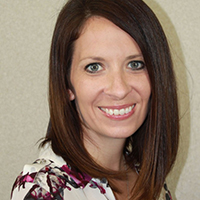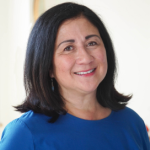Health impacts of domestic violence in Minnesota
October 27, 2022October is Domestic Violence Awareness Month (DVAM). First established in 1987 to connect individuals and organizations working on domestic violence issues, DVAM aims to increase public awareness of domestic violence and show support for those impacted.
In Minnesota, domestic violence affects one in four women. According to Safe Haven Shelter and Resource Center:
- Domestic violence is the leading cause of injury to women, exceeding injuries caused by muggings, stranger rape and automobile accidents combined
- Approximately one in five high school girls have been physically or sexually abused by a dating partner
- Nearly one third of homeless women in Minnesota are homeless at least in part because of domestic abuse
- Domestic abuse victims account for one quarter of violent crime victims in Minnesota – and an estimated 80% of domestic assaults go unreported
Based on what is reported, research shows that approximately 90% of domestic violence is caused by men within heterosexual relationships – meaning that the majority of violence impacts women, as well as children, families and communities more broadly.
How domestic violence impacts health
 Beyond its immediate impact, violence leads to stress, isolation, and long-term negative health outcomes such as anxiety, depression, chronic pain and overall poor health. Women who experience violence are also less likely to seek preventive care, such as mammograms, cholesterol and blood pressure checks and cancer screenings.
Beyond its immediate impact, violence leads to stress, isolation, and long-term negative health outcomes such as anxiety, depression, chronic pain and overall poor health. Women who experience violence are also less likely to seek preventive care, such as mammograms, cholesterol and blood pressure checks and cancer screenings.
This clear connection to health is why the Blue Cross and Blue Shield of Minnesota Foundation is committed to helping create and nurture communities that are safe, connected, resilient and inclusive. It does this in part by providing funding to numerous community organizations – particularly those focused on supporting communities that experience structural barriers to safety and connectedness, including Black, Indigenous, Latin, Asian Pacific Islander and other people of color, immigrants, refugees, and people in rural communities.
“Feeling safe and connected to one’s community is essential to health,” says Claire Chang, senior program officer of the Blue Cross Foundation. “When that feeling of safety is missing – particularly as a result of violence and the fear of violence – people are not able to achieve their healthiest life."
"We’re proud to support our grantee partners in working to ensure that all people have what they need to reach their full health potential.”–Claire Chang, senior program officer, Blue Cross Foundation
Communities hold the answers
The Blue Cross Foundation believes that addressing racial and health inequities requires centering the voices of those most impacted – meaning that communities hold the answers to the inequities they face and are best positioned to implement solutions.
Several community organizations are supported by the Foundation to address domestic violence and create connections within and between communities:
 Esperanza United
Esperanza United
Esperanza United (formerly Casa de Esperanza) mobilizes Latinas and Latin@ communities to end gender-based violence. Founded in 1982 as an emergency shelter in St. Paul, Minnesota, Esperanza United grounds their work in community strengths and wisdom, serving Latin@s locally and across the country.
With support from the Blue Cross Foundation, Esperanza United’s Fuerza Unida Amig@s initiative provides Latin@s, their families, and communities with opportunities to build leadership skills, deepen their understanding of the roots of physical, sexual and other forms of gender-based violence, develop positive self-identities, cultivate healthy interpersonal and family relationships, and heal trauma within their families and communities.
 Men as Peacemakers
Men as Peacemakers
Men as Peacemakers (MAP) is a Duluth-based organization focused on engaging individuals and communities in innovative strategies that promote equality, repair harm, and prevent violence against women and children – specifically sexual assault, dating violence and domestic violence.
The Blue Cross Foundation supports MAP’s work with partner organizations and community members on several initiatives. This includes, enhancing community safety and health, facilitating conversations about the intersections of masculinity, manhood, gender and violence, and engaging communities to design solutions and lead social change for domestic and sexual violence prevention.
SEWA-AIFW
SEWA-AIFW is a nonprofit organization committed to serving, supporting, and enhancing family wellness for the South Asian community – especially the vulnerable and underserved – in the Twin Cities and around Minnesota. SEWA’s vision is a South Asian community that is healthy and violence-free, with self-determined women and engaged and supported elders and families.
SEWA’s Foundation-supported work includes its efforts to eliminate domestic violence in the Twin Cities’ South Asian community and address violence against Asians fueled by xenophobia and anti-immigration bias. This includes creating spaces to foster shared learning and provide culturally based trainings and educational materials to the community about interpersonal and community violence, healthy relationships and behaviors, and how to de-escalate racially motivated violence.
The Blue Cross and Blue Shield of Minnesota Foundation is proud to partner with these and other organizations to help counter isolation and create communities where all people are free from fear, violence, and toxic stress, and can achieve their healthiest life. Learn more here.


